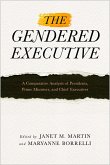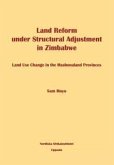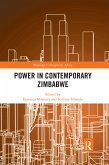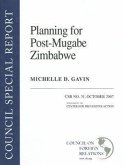The thesis seeks to argue that the absence of a solid guiding political ideology in Africa has led to the continued domination and subjugation of African states by the West. This lack of a home-grown political ideology has caused untold suffering to the masses of Africa through neo-colonial capitalist tendencies which tended to use multi-national companies to expropriate Africa's natural resources and profits made on African soil for their Western or Eastern mother countries. To counter this continued haemorrhage of wealth, a new robust ideological framework has to be adopted. This ideology should take care of the interests of African people first and foremost. Amilcar Cabral has argued that ¿the ideological deficiency not to say the total lack of ideology within the national liberation movements, constitutes one of the greatest weakness of our struggle against imperialism, if not the greatest weakness of all.... nobody has yet made a successful revolution without a revolutionary theory¿ (Cabral 1969:22). The model of development envisaged by Cabral was based on, ¿self-reliance, meeting the people's basic needs and decentralised people-centred and bottom-up type of decision making¿ (Cabral 1969:168). In this study, the author seeks to argue that the ¿gutsaruzhinji¿ (satisfy the multitude/majority) political ideology, which is born out of Hunhu/ubuntu philosophy, can deliver the expected results in Africa in general and Zimbabwe in particular. This theory was first tested in Zimbabwe in 1980 by the post-colonial government of Robert Mugabe. It yielded a number of remarkably positive results. These are discussed in detail in Chapter 3 of this thesis. However, the same government later strayed from hunhu/ubuntu and almost lost its relevance to the people due to a host of reasons as demonstrated in Chapter Four of this thesis. Julius Nyerere contends that ¿The vital point is that the basis of socialist organisation is the meeting of people's needs, not making of profit¿ (Nyerere, 1968:303). This was in answer to the dilemma which most African nationalist leaders found themselves in. In prosecuting an armed struggle against the settler colonialists, they appealed to Karl Marx's dialectical materialism as a guiding ideology. Soon after attaining political independence most of them continued to pronounce themselves socialist which presented them with innumerable challenges as socialism could not be transplanted wholesale from Europe to Africa







